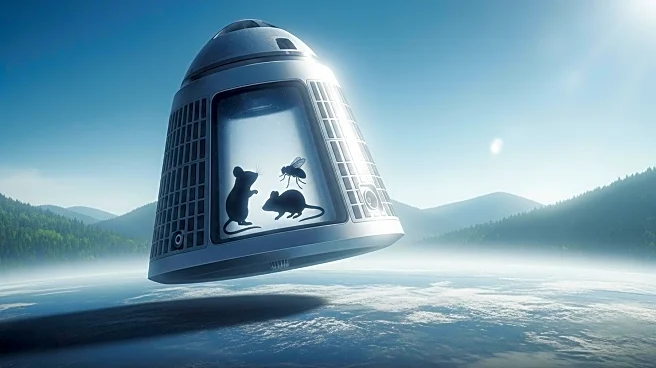What's Happening?
Russia has successfully returned a research satellite carrying 75 mice, over 1,500 flies, microorganisms, plant seeds, and cell cultures. The Bion-M No. 2 satellite, launched in August, conducted over 30 experiments in low Earth orbit to study how life functions in space. The mission, a joint effort between Roscosmos and Russia's Institute of Biomedical Problems, concluded with a landing in the Orenburg region. The descent module, nicknamed Noah's Ark, sparked a brush fire upon landing, which was quickly extinguished. Unfortunately, ten mice did not survive the mission.
Why It's Important?
The return of the Bion-M No. 2 satellite marks a significant step in understanding how life adapts to space conditions, which is crucial for future long-term human space missions. The experiments conducted aim to develop life support systems that can endure prolonged weightlessness and cosmic radiation, improving the radiation safety of crewed spacecraft. This research could contribute to advancements in space travel technology and enhance the feasibility of extended human presence in space, potentially paving the way for future interplanetary missions.









